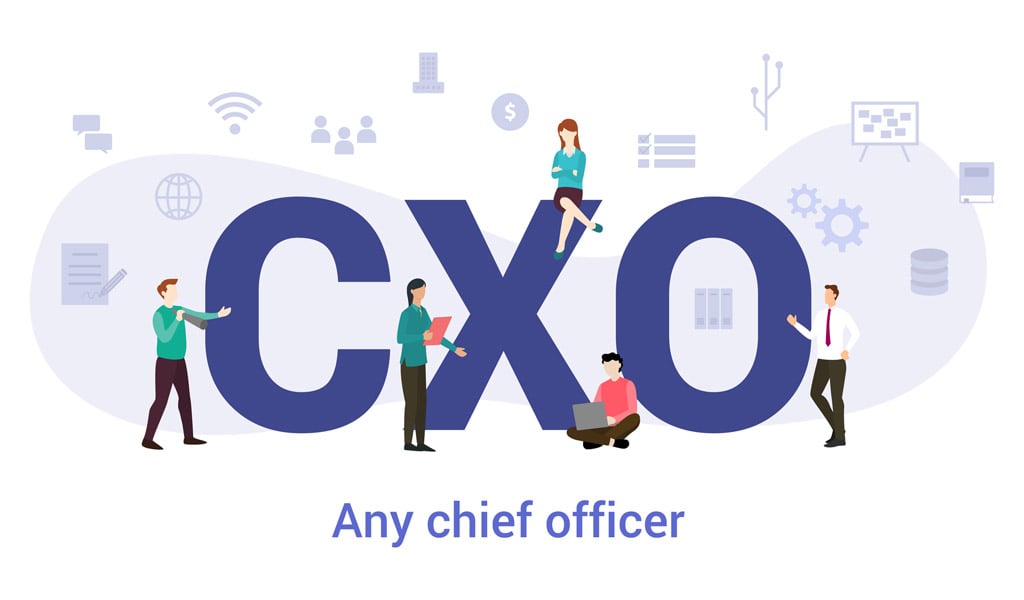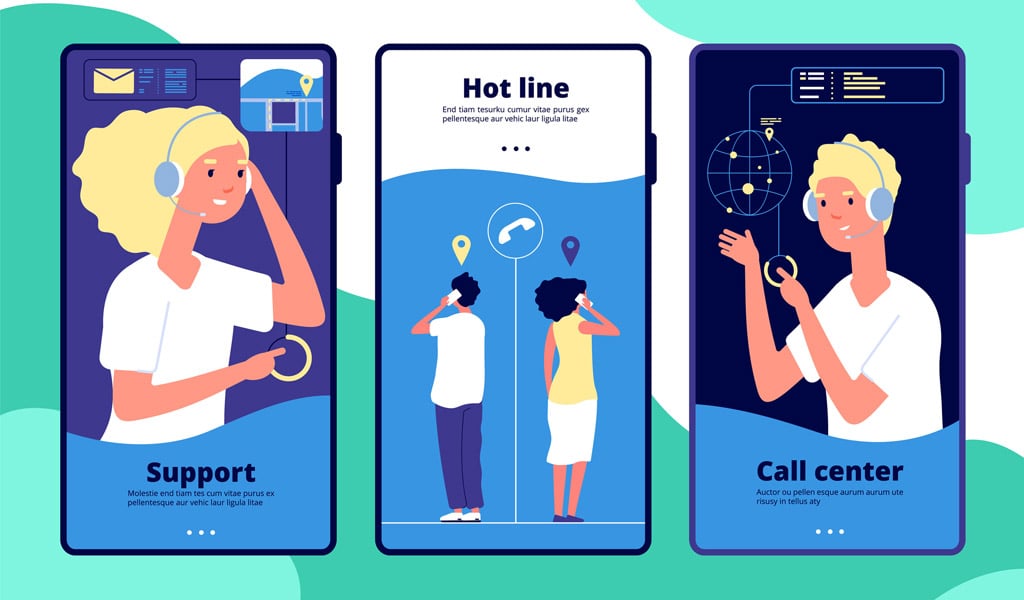
Businesses today are fiercely customer-centric, primarily competing on customer experience where in the past they would compete with low pricing. There’s a good reason for this, countless studies show that by focusing on customer experience, businesses can improve customer retention, customer satisfaction, and ultimately, boost revenues. One study found that companies with a customer experience mindset drive 4-8% higher revenues than their competitors. Another study found that 84% of companies that continually work to improve their customer experience report an increase in revenue. Yet another study found that companies that lead in customer experience outperform their competitors by 80%. We could go on because there are many more studies like this, but you get the picture. Focusing on customer experience adds value to businesses.
But how should you go about improving your customer experience? Do you need to overhaul your CRM? Start using an omnichannel platform? Offer more communication channels? Pay attention to your customer satisfaction scores? Well, yes. All of these goals can help improve your customer experience, but many companies are now also taking one it steps further and hiring a customer experience officer. Today we’re going to be delving into the role of a customer experience officer and analyzing what they bring to the business. We will also be asking the question “should you hire a CXO?” by looking at six benefits a CXO can bring to your company. Let’s take a look.
What is a Chief Experience Officer (CXO)?
A CXO is responsible for the overall aptitude of the products and services of the business. CXOs essentially acts as a mediator between a brand and its customer base. The role of CXO has become more popular in recent years as more and more companies realize the importance of strong customer-brand relationships and their impact on revenue. A CXO plays a crucial role in business growth and customer relations.
What Does a Typical Day Look like for a CXO?
Okay, so now we know what a customer experience officer is, but how does this translate into everyday work? What does a CXO do on a day to day basis to add value to the company? Let’s take a look.
It’s important to note that this role isn’t strictly defined. This means that the role of customer experience specialists can vary from company to company or industry to industry. The role is still relatively new, and there are no hard qualifications that someone would need to become a CXO. Put simply, while you would struggle to become a network engineer without a CCNA qualification, there is no equivalent for a CXO. Instead, the role is largely given based on previous experience and soft skills. With that said, let’s take a look at the roles and responsibilities of a CXO.
- Identifying ideal customer personas and profiles.
- Mapping customer journeys to find gaps in the customer experience for all touchpoints.
- Communicating with internal stakeholders such as customer experience executives or technical support teams to find opportunities for improvement or growth. Customer-facing employees have a deep understanding of the gaps in brand experience.
- Raising red flags where necessary. For example, if there are new issues with billing, downloads, installation, or anything else. Put simply, raising the alarm if anything is getting in the way of seamless customer experience.
- Ensuring that the customer experience strategies are aligned with the wider business, including marketing campaigns and other business goals.
- Collecting, tracking, and analyzing customer feedback. Tracking CSAT and NPS to gauge how well the brand is performing.
- Work with IT and tech teams to advise on any future technology investment that could promote a seamless customer experience.

Why Should You Hire a CXO?
1. Happier Customers Spend More Money
Research has found that loyal customers spend 13% more at each transaction than their less loyal counterparts. One of the key goals for customer experience officers is to increase customer loyalty. They do this by establishing the baseline level of loyalty through customer satisfaction score and other tools, and then conduct in-depth research with very loyal (brand promoters) or disloyal (brand detractors). Based on their findings, they can create new strategies to increase loyalty and decrease the number of brand detractors.
A CXO knows what tools to ask for and they understand the importance of customer behavioral analytics, data science, and other customer insights. They are motivated to increase loyalty to show that their role offers a good ROI.
2. Customer Focused Not Product Focused
Businesses often become overly focused on their products. Someone on the design team might have a great idea for a new product and be very excited about creating it. However, new products must have a good product/market fit. You have to create products that your customers actually want, not just products that you think they should want. CXOs are customer-focused, not product-focused. This means they always lead with the concerns, wants, and expectations of the customer and provide valuable information to the business. CXOs can tell you whether a product is worth pursuing based on whether your customers are likely to want and use the product. This can save a lot of money in the long run.
3. A Consistent Customer Experience
Providing a consistent customer experience is extremely important. Customers will keep coming back to your company if they know what to expect, and what they can expect is a great experience. The CXO is focused on creating a great experience across all customer touchpoints and ensuring that the brand message is consistent. They are quickly and expertly able to identify where there are gaps in the buying experience or where pain points are causing friction and harming brand perception.
4. Developing Your Brand and Company Voice
Developing your brand and company voice is an ongoing process that is never complete. Consistency is key, but so is deliberate consideration about what you want your voice to be and what you want your brand to mean to customers. Sometimes, companies make changes without fully understanding the impact it will have on the future of the brand. CXOs are well equipped to add to this discussion by constantly monitoring the company voice and customer perceptions.
5. Increase Efficiency and Productivity
By using data analytics tools, customer experience officers can easily identify efficiency gaps when it comes to the buying process and offer advice on how to fix it. For example, let’s pretend that it takes customers 4 clicks to get through to the shopping cart and a further 3 clicks to complete the transaction. This causes significant friction. The company might be aware of this, but figure that there are more important things to work on. By using analytics, the CXO can tell you just how much impact this is having and the ROI of improving this process.
6. Improve Customer Retention
The CXO knows your customers better than anyone in the business and also has a good understanding of the business goals. They know how to balance customer wants and needs with those of the business. One of the key areas of focus for CXOs is improving customer retention. It’s much cheaper to retain customers than it is to acquire new customers.

What Qualities Should I Look for If I Want to Hire a CXO?
The issue with roles that are not well defined is that it can be difficult to know what qualities to look for when interviewing candidates. In this section, we hope to shed some light on this topic and tell you what qualities to look for. This section is more of a guideline rather than a hard rulebook. Remember, it’s also important to find a candidate that is a good culture fit with your company because being a good communicator and a team player is an essential part of the job. These responsibilities are made much easier when someone is a good culture fit for your company.
Education
There are no firm education requirements, but a degree is often seen as an attractive quality, especially if the candidate lacks work experience. Here are some degrees that are a good fit for the role:
- Management or business.
- Marketing
- English or creative writing.
- Politics, history, or social sciences.
- Media studies or communication.
These degrees all have elements of analytical reasoning and communication skills, both of which are needed to be a good CXO. More technical degrees could also be a good fit, providing that the candidate also has strong soft skills.
Skills
These are the skills that you should look for in your next CXO:
- Excellent communication skills – The CXO has to be able to communicate effectively with teams across the business and get them to buy-in to new customer-focused strategies.
- Drive and willingness to learn – Customers are constantly evolving in their preferences and expectations, so the CXO must be able to adapt to the customer. This means constantly learning new things and developing new strategies.
- Coping under pressure – When dealing with customers, something can always go wrong. A technical glitch can harm the customer experience and lead to a flood of negative reviews. The CXO must act quickly and remain calm.
- Awareness – The CXO must demonstrate good business awareness and a good awareness of current events. The everyday happenings in the world impact customer buying habits, therefore the CXO must be constantly thinking of strategies that meet customer expectations or go beyond this. Coronavirus and it’s disrupting impact on industries come to mind here – a CXO who isn’t fully versed on the local COVID-19 experience of customers, including local restrictions and other measures, won’t be able to offer a great customer experience.
- Creativity – Complex problems require creative solutions. Rigid thinkers don’t make good CXOs.
- Teamwork – The CXO has to be able to work well as a team, sharing ideas and helping the business curate new strategies.
- Initiative and assertiveness – The CXO must be confident in sharing their creative ideas. Stakeholders from around the business will always have their own priorities, but it’s the job of the CXO to make them understand how emerging strategies can add value.
Previous Job Experience
The jobs below demonstrate good transferable skills and are well aligned with the CXO role. If a candidate has worked in these jobs in the past, then they might be a good fit, regardless of education:
- Marketing, Public Relations, or Communications (internal/external) – People in these roles are excellent communicators.
- Project Management – Project managers work with internal stakeholders, third parties, and customers. They have a good understanding of how to manage people, communicate effectively, bring the right people on board, and see goals through to completion.
- Customer service background – Deep understanding of customers and how to communicate effectively.
- Executive office workers (e.g. secretary to directors, CEOs) – Good at communicating with people from all backgrounds and rankings, and comfortable working in a high-pressure environment.
- Sales – Good under pressure, good communicators, and goal-oriented.